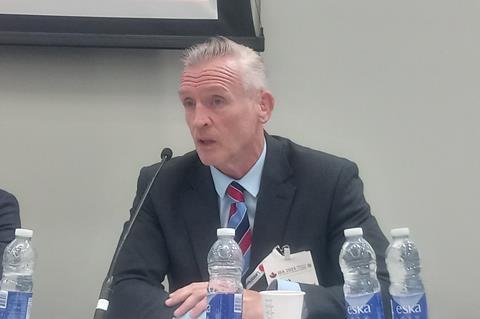One of the most senior lawyers in the UK profession has warned of the dangers of celebrating or aligning with clients, saying it opens the sector up to wider attacks.
Roddy Dunlop KC, the dean of Scotland’s Faculty of Advocates since 2020, said lawyers risk losing their independence or undermining arguments about the cab rank rule when they publicly champion a client’s cause, particularly on social media.
Speaking at the International Bar Association conference earlier this month, Dunlop criticised the media and politicians for attempting to identify lawyers with their clients. This has manifested, he said, in attacks on the prime minister for representing certain individuals when he was in practice. ‘A central part of the rule of law is that anyone, no matter how unpopular they or their cause might be, is entitled to representation and to a fair hearing, said Dunlop. ‘Politicians shouting down lawyers for acting for such clients is unacceptable, and itself contrary to the rule of law.’

But the flip side, said the KC, was that lawyers should equally not give ammunition to these critics by appearing to align with clients or offer public support for their cause.
He added: ‘When we demand, as we should, that we not be identified with our clients – as who wants to be known as the paedophile’s friend? – we create a situation where it is dangerous to start crowing about our clients.
‘Great public announcements of victories for supposedly virtuous clients do not sit well with an insistence that a lawyer running a case is just doing her job. Independence should mean freedom from state criticism. We imperil that when we embrace our clients too publicly.’
Read more
Barbara Mills KC, chair of the Bar Council of England and Wales, spoke on the same panel as Dunlop and agreed that lawyers must be conscious of anything which might bring into question their independence. She said: ‘It is very difficult when on the one hand we say that we shouldn’t be associated with our clients when people speak with such loud, strong voices in a way that blurs it. It provides us with a challenge for sure.
‘What members say to me is ”but I have a right to say what I want to say” and there are article 10 rights and so on. It is very difficult to manage that. To me it is common sense: what are saying, why are you saying it, how are you saying it and what are the implications? [Because] they follow you and people have to be mindful of that.’































12 Readers' comments